celebrities Posts on Crowch
In July 2025, fans will witness the highly anticipated return of Dexter Morgan—the iconic antihero from the cult thriller series Dexter. In the new show Dexter: Resurrection, created by Clyde Phillips for Paramount+ and Showtime, Michael C. Hall reprises his role as Dexter, haunted by the shadows of his past. Picking up after New Blood, Dexter lands in New York City on the trail of his son Harrison, while Captain Batista refuses to let go in the search for truth. With co-stars like Peter Dinklage, Uma Thurman, and Ntare Mwine, the series is not just about hunting killers—it explores the fragile balance of identity when one's past resurfaces in a new world. Michael C. Hall portrays not just Dexter’s calculated charm, but also the vulnerability of a man struggling to control his darkness, especially when paternal bonds collide with instinctual habits.
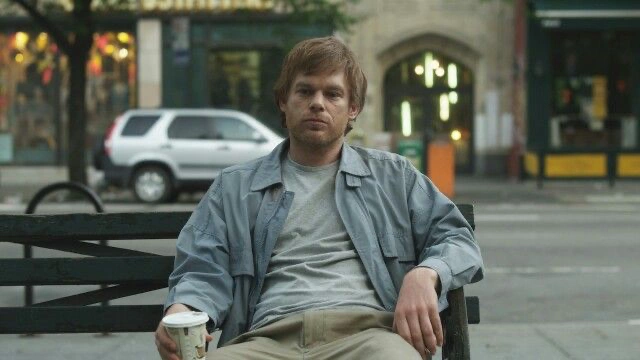
Dexter: Resurrection – A Dark Legacy Reawakened
In July 2025, fans of psychological thrillers and morally complex characters will be drawn once again into the chilling world of Dexter Morgan. The legendary antihero returns in Dexter: Resurrection, a bold new continuation of the story that captivated millions. Created by original showrunner Clyde Phillips for Paramount+ and Showtime, the series promises to push boundaries even further than before, delivering suspense, emotional depth, and gripping drama.
Michael C. Hall steps back into the blood-splattered shoes of Dexter, portraying him with the same magnetic intensity that made the character a pop culture phenomenon. But this time, Dexter is older, more haunted, and navigating a world where his secrets are no longer safely buried. After the explosive events of Dexter: New Blood, the story picks up with Dexter hiding in the shadows of New York City, following the faint trail of his estranged son Harrison.
Now a young man with a complicated past of his own, Harrison has inherited more than just his father’s name—he’s inherited the darkness that runs in the family. As Dexter tries to reconnect and guide his son, he is forced to confront uncomfortable truths about his legacy and the monster he might have passed down.
Adding layers to the drama is the relentless pursuit of Captain Angel Batista, who remains convinced that not all was as it seemed in Iron Lake. Batista's obsession with the truth grows as new clues emerge, pulling him into Dexter’s orbit once more and threatening to expose everything.
The series introduces a stellar supporting cast:
- Peter Dinklage plays a brilliant but morally ambiguous FBI profiler whose past cases may be linked to Dexter’s path.
- Uma Thurman takes on the role of a cold and calculating psychiatrist who sees through Dexter in ways no one has before.
- Ntare Guma Mbaho Mwine joins as a conflicted NYPD detective torn between justice and loyalty.
Unlike its predecessors, Dexter: Resurrection isn’t just about vigilante justice—it’s about what happens when redemption and destruction walk the same line. New York serves as a stark, impersonal setting compared to Miami’s familiar warmth, emphasizing Dexter’s isolation and the emotional weight of his choices.
Expect darker themes, more intricate character development, and a deeper psychological exploration. Dexter is no longer the predator who operates in the shadows—he’s a father, a fugitive, and a man grappling with the consequences of his former life.
The show explores timeless questions: Can people truly change? Is evil inherited, or shaped by environment? And perhaps most importantly—can love survive the truth?
Dexter: Resurrection is not just a revival. It’s a reckoning.
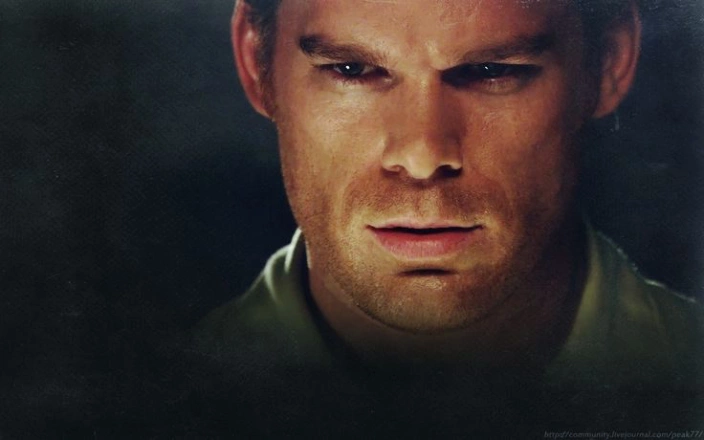
Mahershala Ali returns to the small screen in Crossing Lines, a crime thriller that moves across national borders — and moral ones. His character, Etienne Durand, is a high-ranking commissioner investigating transnational crimes that blur every sense of jurisdiction — human trafficking, murder, corruption.
But Durand isn’t just an officer — he’s a man with a past. His face carries the weight of everything he’s seen and everything he’s done. He looks at both victims and criminals not with judgment, but with the weary eyes of someone who understands that right and wrong are rarely clean lines.
Each case brings him closer not just to answers, but to inner reckoning. He knows the law doesn’t always lead to justice, and sometimes stopping evil means compromising with it. His journey is less about evidence and more about identity.
Ali’s performance is restrained and powerful. His Durand doesn’t shout; he listens. He doesn’t break down; he bends under pressure, silently and intensely. This is no glossy detective story — it’s a portrait of a man walking the tightrope between justice and survival.
Crossing Lines offers no easy resolution. It pulls viewers into a world where truth is elusive and morality is messy. At its center is Ali, not as a hero, but as a man doing his best not to be lost in the darkness he walks through.
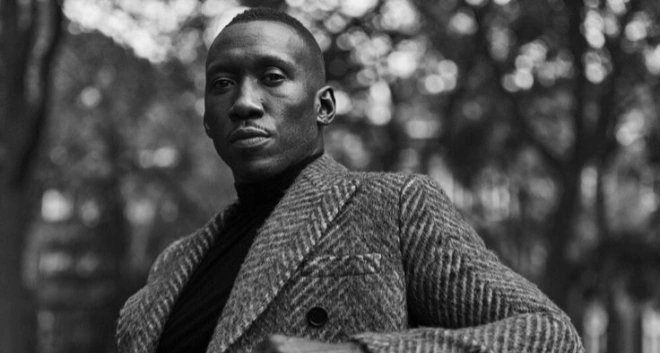
Set against the haunting backdrop of Europe’s political undercurrents and shadowy power structures, Crossing Linesdelves into the uncomfortable spaces where justice systems fail and borders become irrelevant. The series eschews traditional procedural tropes in favor of a slow-burning, character-driven narrative where each case peels back another layer of systemic rot — and of Etienne Durand himself.
The show’s structure is unique: each season centers on a major investigation, but within that arc are self-contained episodes that explore the human stories behind the crimes. A missing refugee girl in Hungary leads to a black-market organ ring operating through diplomatic channels. A double homicide in a Paris hotel uncovers a trafficking network funded by legitimate international foundations. These aren’t random crimes — they’re symptoms of a much larger illness.
Durand is partnered with a multi-national task force, but it’s no idealistic melting pot. His team — a German cybercrime analyst haunted by her own hacking past, a British ex-undercover cop rebuilding his life, a young Italian interpreter with ties to organized crime — bring their own ghosts, biases, and moral contradictions. The tension within the group mirrors the chaos of the world they’re trying to protect, forcing them to question not just how far they’re willing to go, but what it’s even for.
As political pressure mounts, Durand’s decisions grow murkier. Intelligence agencies with their own agendas, local police eager to pass responsibility, and bureaucrats who prefer silence over scandal — all contribute to a web of obstruction. Durand must navigate not just crime scenes, but diplomatic meetings, coded threats, and moments where the law becomes irrelevant in the face of power.
What makes Crossing Lines stand out isn’t the thrill of the chase, but the weight of the aftermath. The victims aren’t forgotten once the case closes — their stories echo through Durand’s conscience, complicating each step forward. Sometimes the perpetrator walks free, other times the arrest brings no closure. The question becomes not “Did we win?” but “Was this the best we could do?”
Visually, the series leans into natural lighting, muted palettes, and tight framing. Cities feel claustrophobic; nighttime scenes blur the line between safety and danger. The camera lingers on Durand’s silences, on glances between characters, on small, human choices that say more than words ever could.
The writing is rich with subtext — political, psychological, and emotional. Conversations unfold in layered exchanges, often with more meaning left unsaid. Flashbacks are rare but precise, giving just enough to hint at Durand’s haunted past without reducing him to a cliché.
More than anything, Crossing Lines is a meditation on compromise. It asks hard questions about what we sacrifice to protect others, and whether justice means more than simply enforcing rules. Etienne Durand is no savior — he’s a witness to a world unraveling at the seams, trying to hold something together with frayed conviction and quiet humanity.
In a landscape full of fast-paced thrillers and binary moralities, Crossing Lines slows down, looks inward, and offers something far rarer: a story that respects its audience’s intelligence, and a lead character who earns empathy not through perfection, but through persistence.
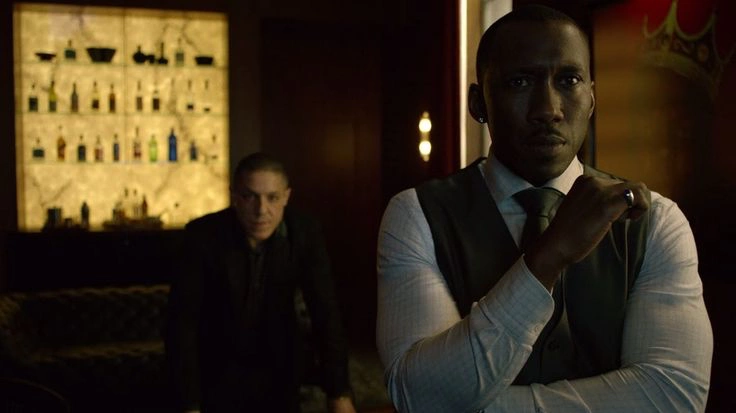
Space calls once again, and in 2025 Florence Pugh leads the way in Starlight Expedition, a film that pushes science fiction beyond spectacle into emotional territory. She plays Captain Naomi King, the commander of the deep-space research vessel Atlas, embarking on humanity’s most distant mission yet.
But Starlight Expedition isn’t about alien invasions or space wars. It’s a story about human beings — their doubts, fears, and the hope they carry into the unknown. Naomi King isn’t a flawless hero; she falters, questions herself, and searches for the right path. Her leadership is grounded not in dominance, but in empathy. She listens, cares, and shoulders the weight of responsibility not with pride, but with humility.
Florence Pugh doesn’t just act — she inhabits Naomi. Every line in her face speaks of quiet fear, every decision comes with a silent cost. Critics are already calling this one of the most emotionally grounded performances in sci-fi in years.
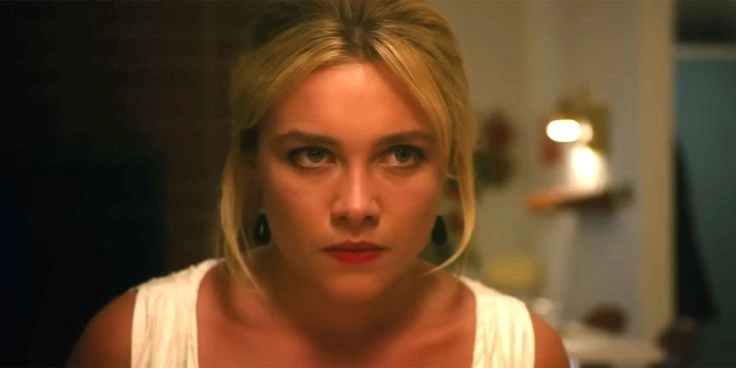
The cosmos, in this film, is not a cold void — it’s a mirror. And what it reflects is intimate and raw. There are no monologues about saving the galaxy, no superheroic poses. Just a woman trying to protect her people, hold herself together, and stay human in the infinite dark.
Pugh turns that darkness into something luminous, reminding us that in space, the most powerful force isn’t propulsion — it’s compassion.
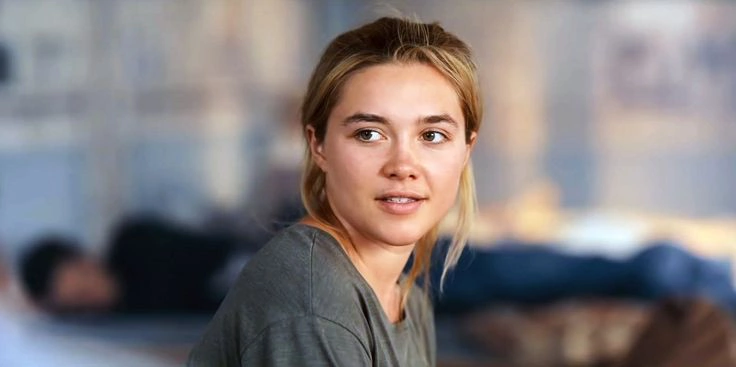
Starlight Expedition unfolds as both a journey into deep space and a journey inward, where silence is more profound than sound, and stillness often says more than action. Set in the late 21st century, the film chronicles the Atlas mission — Earth’s boldest attempt to reach the unexplored reaches of a neighboring star system. But unlike traditional sci-fi epics, the emphasis is not on technological marvels or galactic stakes, but on the psychological and emotional toll such a mission exacts on those who dare to leave everything behind.
The Atlas crew is small, diverse, and deeply human. Among them is Dr. Malek Chen (played by Riz Ahmed), a theoretical physicist and trauma survivor whose quiet demeanor hides a complex interior life. Commander Aria Solis(played by Thandiwe Newton), the ship’s moral compass, serves as Naomi King’s closest confidante — and occasional challenger. Tension arises not from external threats, but from internal strain: isolation, memories left behind, and the burden of expectations when failure means more than death — it means the end of hope.
The screenplay, written by Lisa Joy (Reminiscence, Westworld), favors realism over spectacle. Conversations are intimate, fragmented, and often tinged with longing. Flashbacks — used sparingly — offer glimpses of Earth, family, and the lives the crew once had. These fragments, emotionally charged and visually soft, contrast starkly with the clinical interiors of the Atlas and the vast, oppressive silence of interstellar space.
Visually, the film is stunning in its restraint. Director Denis Villeneuve, known for his mastery of tone and space (Arrival, Dune), crafts a cinematic experience that avoids cliché. The spacecraft is not sleek or futuristic — it’s functional, lived-in, even slightly worn. The stars outside the window aren’t treated with wonder, but with reverence and dread. The color palette shifts between cold steel blues and warm, memory-infused golds, echoing Naomi's own emotional oscillation.
As the Atlas drifts farther from Earth, time dilation begins to affect the crew. Years pass at home in a matter of days onboard. The psychological pressure mounts. Messages from Earth become rare, voices more distant. Some crew members grow silent, others restless. The line between duty and delusion starts to blur.
At the center of this pressure cooker is Naomi King, balancing survival with sanity, leadership with vulnerability. Her bond with the crew is not hierarchical, but profoundly emotional. In moments of crisis, she doesn’t command — she connects. Her conversations with Dr. Chen become philosophical — discussing the nature of memory, the elasticity of time, and the unbearable beauty of the unknown.
The score, composed by Hildur Guðnadóttir, is minimalist and haunting — built from deep synths, fractured echoes, and lingering silence. It doesn’t overwhelm the scenes but inhabits them, giving voice to what the characters cannot say aloud.
In the third act, Starlight Expedition takes an unexpected turn — not through a twist, but a revelation. The real purpose of the mission was never just exploration, but exile, orchestrated by world governments as a last-ditch attempt to preserve something unspoken. This betrayal fractures the crew's sense of purpose and pushes Naomi to make a final, irreversible choice — one that redefines sacrifice and reshapes the mission’s legacy.
Ultimately, Starlight Expedition is not about reaching a destination. It’s about what we carry with us — memories, regrets, resilience — when we leave everything behind. It reminds us that even in the most advanced ships, among the stars, we remain fragile creatures searching for meaning.
This is science fiction not for escapism, but for reflection. And in that reflection, we may just find ourselves.
In a world where freedom was often won by force, he chose the path of peace.Mahatma Gandhi proved that nonviolence can be mightier than the sword, and truth stronger than empire.
Born in 1869 in India, Gandhi was raised with deep spiritual values. After studying law in London, he moved to South Africa, where he experienced institutional racism. There, he developed his philosophy of Satyagraha — "truth-force," or peaceful resistance.
Returning to India in 1915, he became the heart of the movement for independence from British rule — not through war, but through non-cooperation, boycotts, civil disobedience, and unwavering moral resolve.
“Be the change you wish to see in the world,” he famously said.
One of his most iconic acts was the Salt March of 1930, where Gandhi and his followers walked over 240 miles to the sea to protest Britain’s salt monopoly. It was a protest with no weapons — only courage, unity, and principle.
Gandhi was not without flaws, but he never strayed from his core belief: freedom must be born from peace, not hatred.
His influence reached far beyond India. Leaders like Martin Luther King Jr. and Nelson Mandela drew strength from his example.
On January 30, 1948, Gandhi was assassinated — but his ideals remain alive across the globe.
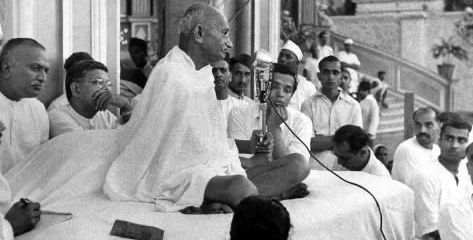
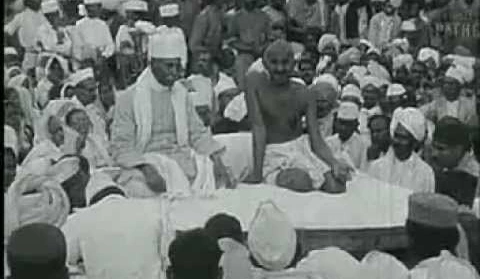
Gandhi's journey was not marked by conquest, but by conscience. He stood not on battlefields, but on principles — and in doing so, he changed the course of history. More than a political figure, Mohandas Karamchand Gandhi was a moral revolutionary whose weapon was the human spirit.
His life was a testament to patience and conviction. Dressed in simple cloth and walking barefoot, Gandhi embodied the very values he preached — humility, service, and equality. For him, true strength came not from domination, but from the ability to suffer for a just cause without retaliation.
Throughout his lifetime, Gandhi endured countless arrests, hunger strikes, and public criticism. Yet he remained steadfast. Each time he was imprisoned, his resolve only grew stronger. He turned personal sacrifice into collective empowerment — showing millions that the chains of oppression could be broken not with bullets, but with belief.
He championed the rights of the "untouchables," whom he renamed Harijans, or “children of God.” He advocated for women’s rights, self-sufficiency, and interfaith harmony, believing that freedom must include all — or it includes none. To Gandhi, independence was not only political but spiritual. It required a transformation of the self as well as society.
Gandhi’s spinning wheel, or charkha, became a symbol of self-reliance and resistance. By encouraging Indians to spin their own cloth instead of buying British textiles, he turned an everyday act into a national movement. His call to “swadeshi” — the use of homegrown goods — was a radical act of reclaiming identity from the grip of colonial rule.
But perhaps what set Gandhi apart most was his unwavering belief in the power of dialogue. He met with his fiercest opponents not to destroy them, but to understand them. Even in the face of violence and hatred, he held fast to nonviolence as a path not of weakness, but of unimaginable courage.
The twilight of his life was shadowed by the partition of India in 1947 — a tragedy that tore the subcontinent into two nations and left lasting scars. Gandhi mourned the bloodshed and worked tirelessly to calm communal violence. While others celebrated independence, he fasted to protest Hindu-Muslim conflict, refusing to rejoice while his people suffered.
His assassination in 1948 was a tragic end to a life dedicated to peace — but it did not silence his message. Instead, it echoed louder across generations. Gandhi’s philosophy would inspire movements for civil rights, human dignity, and justice around the world.
In the decades that followed, his teachings shaped global figures and grassroots movements alike. Martin Luther King Jr. drew upon Gandhi’s strategies during the American civil rights movement. Nelson Mandela found strength in his philosophy during South Africa’s struggle against apartheid. Even today, peaceful protests around the globe — from climate marches to democracy movements — carry Gandhi’s spirit forward.
Gandhi once said, “The day the power of love overrules the love of power, the world will know peace.” Those words remain a compass for those still seeking justice without violence.
His legacy is not just etched into history books or carved into statues. It lives on in every act of kindness, every voice raised for truth, and every step taken toward equality. Gandhi showed us that peace is not passive — it is an active, radical force capable of changing even the most entrenched systems.
To remember Gandhi is to remember that the greatest revolutions begin not with weapons, but with the courage to stand firm in peace — no matter the cost.
In 2025, Margot Robbie reinvents herself in the gritty crime drama “Queen of Crime”, leaving behind comic-book chaos for the shadows of noir realism. Directed by Sarah Polley, the film is based on the true story of Diane Morris — a London-based woman who rose to power by building a secret financial empire during the turbulent 1980s, amidst corruption, gender politics, and high-stakes betrayal.
Robbie portrays Diane not as a stereotypical mob boss, but as a brilliant, dangerously charming strategist who juggles power and motherhood, ambition and moral compromise. It's a far cry from Harley Quinn — here, she plays a composed, calculating woman who controls everything until one critical alliance collapses.
The narrative spans Diane’s rise, reign, and reckoning, laced with suspense and psychological intensity. The aesthetic leans into noir elegance: smoky lounges, sharp silhouettes, and vintage jazz framing her empire’s rise and fall. Supporting cast includes Dominic West, Vanessa Kirby, and David Thewlis.
Set to premiere on November 17, 2025, at the BFI London Film Festival, Queen of Crime is already being called Robbie’s most mature performance yet — a transformative leap into prestige drama, where she doesn’t just play a queen, she becomes one
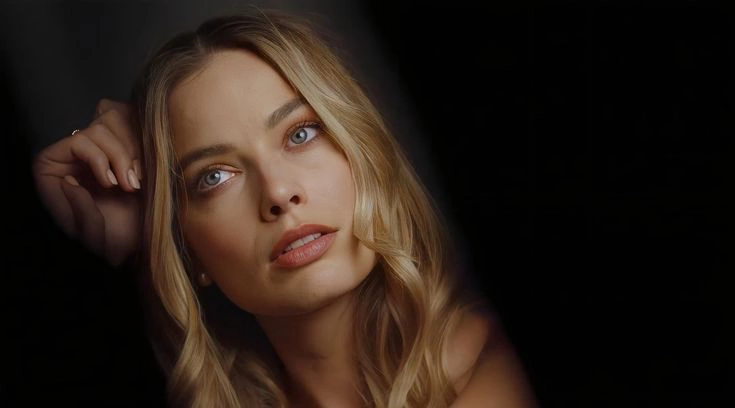
Queen of Crime isn’t just another entry in the true-crime genre — it’s a cinematic reinvention. At its core, the film is a character study about control: who wields it, who fears it, and what it costs to keep it. Diane Morris, brought chillingly to life by Margot Robbie, is no cartoonish mastermind — she is human, brilliant, bruised, and burning with purpose.
Set during Thatcher-era London, a time when power structures were shifting but still deeply hostile to female ambition, the film peels back layers of history, gender dynamics, and criminal sophistication. Diane operates in a man's world, but she doesn't try to mimic her male counterparts — she outthinks them. Her criminal empire is constructed not with violence, but with precision: shell companies, coded messages, and high-level manipulation. She launders money not through nightclubs, but through cultural institutions and luxury real estate.
Robbie’s Diane is cool under pressure, but the cracks show at just the right moments. In private, she's a mother shielding her son from the life she's built. In public, she's an enigma — impeccably dressed, eternally watchful, and always three steps ahead. The role demands subtlety over spectacle, and Robbie delivers it with simmering control. Her performance is less about dramatic outbursts and more about the stillness that precedes them — the long glances, the tightened grip on a champagne flute, the soft voice that carries razor-sharp warnings.
Director Sarah Polley infuses the film with a haunting tone, blending 1980s grime with timeless noir. There’s a tactile richness to every scene: flickering neon signs, the sound of stilettos on wet pavement, the hiss of jazz from an old record player. The film draws inspiration from classics like The Long Good Friday and The Third Man, but updates their sensibilities with a distinctly feminist lens.
Dominic West plays a corrupt banker with personal ties to Diane, their chemistry crackling with both danger and history. Vanessa Kirby takes on the role of Diane’s estranged sister — a social worker whose moral clarity becomes a mirror Diane tries desperately to avoid. David Thewlis, in a standout supporting role, is a disgraced detective who becomes both threat and confidant, circling Diane’s world with suspicion and reluctant awe.
The screenplay, penned by Abi Morgan (The Iron Lady, Shame), refuses easy resolutions. Diane isn’t romanticized — nor is she punished in simplistic ways. Her world is messy, morally gray, and painfully real. The film explores how women are judged differently when they seize power — seen as ruthless for the same strategies that make men legends. In Queen of Crime, every glance, every deal, every betrayal carries double meaning: one for the world she’s navigating, and one for the mirror she avoids.
At the heart of the film is a question: Can a woman change the game without becoming what she once despised? Diane’s arc is both tragic and triumphant, her rise built on the ruins of trust, and her downfall tangled in loyalty too long deferred.
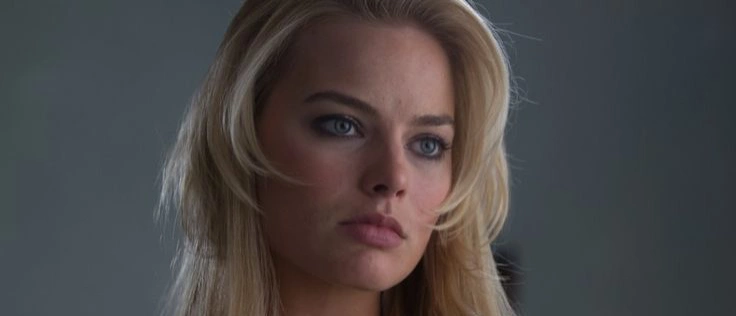
Queen of Crime doesn’t just mark a turning point in Margot Robbie’s career — it redefines it. With this role, she sheds her blockbuster persona and steps fully into the realm of character-driven prestige storytelling. Critics are already hailing the film as a slow-burn masterpiece — a rare blend of art-house aesthetics and commercial appeal.
With its world premiere set for the BFI London Film Festival on November 17, 2025, and Oscar buzz already building, Queen of Crime is poised to dominate conversations long after the credits roll. It’s not just about a woman who broke the law. It’s about a woman who rewrote it.
After the resounding success of the first two films, “Dune: Messiah” becomes the third chapter in Denis Villeneuve’s epic saga based on Frank Herbert’s novels. Timothée Chalamet returns as Paul Atreides — now a messianic emperor torn between personal loss and the fate of the galaxy. Set for release on December 18, 2025, the film is already hailed as the trilogy’s most emotionally complex installment.
Set several years after Paul’s victory over the Harkonnens, the film follows a man who, despite being revered as a savior, is haunted by visions of tyranny and destruction. Chalamet delivers a profound transformation: Paul is no longer a youthful avenger, but a reluctant ruler burdened by power. New characters emerge — Alia (Florence Pugh), the mysterious Scytale, and the escalating political games of the Bene Gesserit.
Visually, the film expands even further: desert warfare gives way to sacred temples, prophetic dreamscapes, and monumental worm sequences. Hans Zimmer returns with a new score filled with Middle Eastern tones and haunting choir motifs. Villeneuve describes Messiah as “a prayer and a warning” — a meditation on leadership, sacrifice, and consequence.
Chalamet, having evolved from his breakout in Call Me by Your Name to a galactic ruler, now delivers a performance of quiet intensity, philosophical weight, and restrained emotion. His Paul Atreides cements itself as one of sci-fi’s most complex figures — and a career-defining role.
Dune: Messiah marks a dramatic tonal shift from the triumph of its predecessor. If Dune: Part Two was a story of vengeance and revolution, Messiah is a meditation on what follows victory — the price of power, and the loneliness of those who wield it. Denis Villeneuve leans deeply into the novel’s introspective heart, crafting a film that questions not only heroism, but the narratives we create around leaders and legends.
The story begins with Paul firmly seated on the throne as Emperor of the Known Universe, backed by the fanatical loyalty of the Fremen and the fear of every great House. But the victories of the past now feel hollow. The jihad carried out in his name has left billions dead across the galaxy, and Paul wrestles with whether his visions of the future — full of fire, blood, and repression — are inevitable, or if he still has the agency to break the cycle.
Florence Pugh’s Alia Atreides is a revelation — Paul’s younger sister, born with ancestral memories, possessing immense power and unnerving maturity. Pugh brings a chilling clarity to the role, portraying Alia as both a protector and a threat, a spiritual guide and a wildcard whose very existence unsettles the political balance. She shares the burden of prescience, and her scenes with Paul crackle with eerie sibling intimacy and ideological conflict.
A significant addition is Scytale, a Face Dancer of the secretive Tleilaxu order — a shapeshifting conspirator whose motives lie at the heart of the anti-Atreides resistance. Their presence brings themes of identity, illusion, and biological manipulation to the forefront, expanding the series' exploration of what it means to be human. Cast in this enigmatic role is Barry Keoghan, whose unsettling calm makes Scytale both seductive and terrifying.
Rebecca Ferguson returns as Lady Jessica, now more firmly entrenched in the designs of the Bene Gesserit. Torn between maternal loyalty and political duty, she embodies the series’ ongoing meditation on female agency, religious manipulation, and generational legacy.
The film’s aesthetic, while maintaining the stark grandeur of Arrakis, now leans heavily into mysticism. Villeneuve and cinematographer Greig Fraser employ dreamlike lighting, rich golds and blood reds, and prolonged silences to evoke sacred spaces and inner turmoil. Sequences set within Fremen sietches are now interspersed with haunting visions and ancient prophecies unfolding like puzzle pieces — creating a dual reality where the spiritual and political collide.
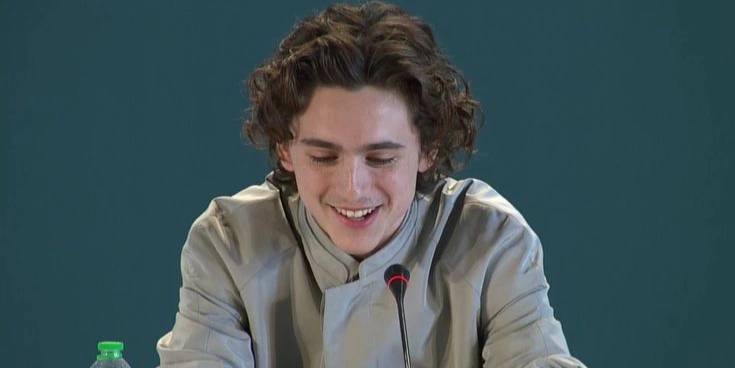
Hans Zimmer’s score evolves accordingly, incorporating Sufi musical traditions and layered vocalizations that reflect both ecstasy and lament. The music pulses with tension — less bombastic than in previous films, more ceremonial and dissonant, echoing the conflict within Paul himself.
Despite the scale, Dune: Messiah is a deeply intimate film. Paul Atreides spends much of it not in battle, but in quiet agony — questioning the very faith placed in him. Can a messiah renounce his role without dismantling the belief systems of those who follow him? Can he choose love over legacy?
As Chani (Zendaya) grows increasingly alienated by Paul’s detachment, their love becomes another battlefield. She challenges his choices, reminds him of the man he once was, and grounds the story in human emotion amid cosmic politics.
This chapter offers no easy victories. It is a film about myth collapsing under the weight of truth, and about a man who sees everything coming — but still cannot stop it.
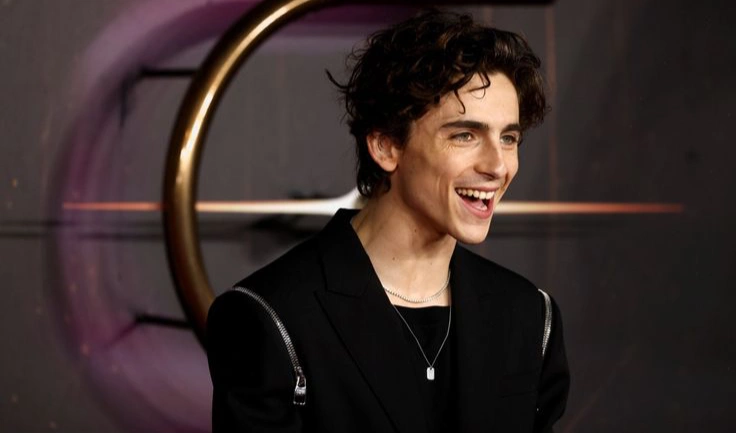
Dune: Messiah is more than a sequel. It’s an existential reckoning wrapped in science fiction — as bold and introspective as its protagonist, and destined to spark conversation long after the sands settle.
In 2025, the long-awaited prequel to the Mad Max universe — “Furiosa” — brings Anya Taylor-Joy to center stage in the title role. She plays the younger version of the fierce warrior originally portrayed by Charlize Theron. Director George Miller returns to the wasteland with his signature chaos, chrome, and mythic scale.
The film explores Furiosa’s youth and abduction by a warlord named Dementus (played by Chris Hemsworth). Anya underwent intense physical training and emotional preparation. Miller described her performance as a blend of fiery resilience and hidden sorrow — a side of Furiosa never before seen in Fury Road.
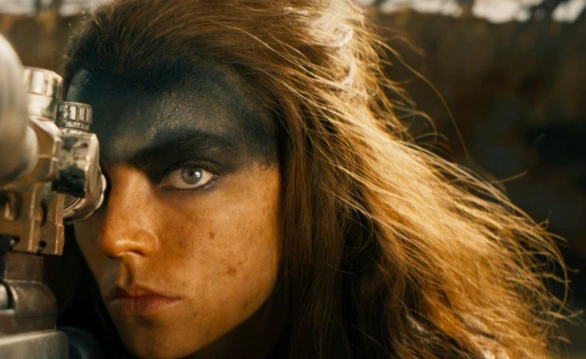
Furiosa is not just a return to the wasteland — it’s a rebirth. Where Mad Max: Fury Road delivered explosive momentum and minimal exposition, Furiosa takes a deeper, more introspective route. It traces the painful forging of a legend — how a girl torn from home becomes the relentless rebel we meet years later behind the wheel of a war rig.
Set years before the events of Fury Road, the prequel reveals a younger, more vulnerable Furiosa — not yet the war-hardened general, but a captive, a survivor, and eventually, a strategist in a brutal world without mercy. Director George Miller crafts a narrative that stretches across decades, showing not just battles, but transformations.
The film introduces the “Green Place” of Many Mothers not as myth, but as reality — a lost sanctuary that shaped Furiosa’s ideals and sense of justice. Its fall becomes the emotional engine of her story. Torn from this place of fertility and knowledge, Furiosa is thrust into the oil-and-blood economy of the Citadel system, where warlords carve up power and survival demands violence.
Chris Hemsworth’s Dementus is a striking addition to the Mad Max rogues’ gallery — a flamboyant, manipulative tyrant who uses charisma as a weapon. Far from a one-note villain, Dementus sees himself as a savior, building an empire from the wreckage of civilization. Hemsworth brings a twisted vulnerability to the role, oscillating between fatherly mentor and sadistic oppressor. His complex relationship with Furiosa becomes the film’s central axis: not just a battle of strength, but of identity.
Anya Taylor-Joy disappears into the role. Her Furiosa is defined not by dialogue, but by eyes that observe, calculate, and remember. She’s frequently silent, yet the performance speaks volumes — conveying the burden of memory, the slow build of rage, and the hunger for freedom. Her physicality is raw, and every scar has a story. It’s a coming-of-age tale in a world where innocence is not lost — it’s stolen.
The cinematography, once again helmed by Simon Duggan (with influence from Fury Road's John Seale), is breathtaking. The desert isn’t just a backdrop — it’s alive with shifting light, roaring storms, and ruins that whisper of a fallen world. The vehicle design leans more toward the skeletal and improvised, evoking an earlier, more chaotic phase of post-apocalyptic engineering.
While the action remains kinetic and grounded in practical effects, Furiosa offers a more lyrical pace at times — dreamlike sequences, night raids lit only by fire, and moments of stillness that emphasize isolation. Miller builds a mythological tone through ritual, costume, and symbols — from body paint to battle standards — all speaking to a fractured culture struggling to redefine power and purpose.
Tom Holkenborg (Junkie XL) returns with a thunderous, emotionally layered score. Brass blares meet ethereal synths, war drums pulse beneath whispered chants. The music doesn’t just energize action scenes — it weaves into the film’s soul, marking Furiosa’s internal evolution.
At its core, Furiosa is not just about survival — it’s about reclamation. Of identity. Of justice. Of a future stolen too soon. It’s a story about a girl made into a weapon, choosing to become a liberator.
As the engines roar and the sand flies once more, Miller reminds us why this universe endures: because amidst destruction, there is always a flicker of rebellion — and one woman, born in fire, ready to lead the charge.
For Taylor-Joy, acclaimed for The Queen’s Gambit, The Witch, and Last Night in Soho, this is a landmark role — not just another action film, but a character-defining odyssey. Premiering in May 2025, Furiosa has already been hailed as one of the greatest action movies of the decade.
In March 2025, Tom Holland brings his unmistakable charisma to the screen in the eco-thriller “The Last Forest”, directed by Lena Karpova. Co-starring Svetlana Ustinova and Zhang Chiwen, the film investigates the disappearance of mysterious forests in Russia’s Zabaykalsky region — a story blending environmental anxiety with personal drama. Holland plays a geologist-inspector caught between science and corporate corruption surrounding natural resources.
Known for blockbusters like Spider-Man and Uncharted, Holland’s role in “The Last Forest” marks a significant creative challenge: the film not only aims to captivate visually with its Siberian forest setting, but also to showcase Holland’s capacity for nuanced, dramatic performance. Where many see only action, Holland delves into complex emotional terrain.
The film debuts on March 22, 2025, with Holland confirmed to appear at its Berlin festival promotion. “The Last Forest” is shaping up to be one of the most memorable independently produced Russian films with global backing — and Holland’s contribution is central to its impact.

The Last Forest is not just an eco-thriller — it’s a quiet cry for help wrapped in a suspenseful, beautifully composed mystery. Set in the remote and hauntingly vast Zabaykalsky Krai of Eastern Siberia, the film uses its isolated setting as both narrative catalyst and atmospheric character. Director Lena Karpova — known for her minimalist, emotionally resonant storytelling — crafts a film that feels simultaneously intimate and epic.
Tom Holland plays James Calder, a British geologist who has spent years mapping disappearing biomes across Eurasia. Sent to investigate why entire tracts of ancient forest are vanishing without trace — not burned, not logged, but seemingly erased — he finds himself in a world where nature and truth are under siege. What begins as a scientific expedition quickly transforms into a confrontation with forces far beyond what his instruments can measure.
The deeper he ventures into the wilderness, the more unsettling his findings become. Animal populations are silent. Trees rot from within. Entire GPS-mapped valleys seem to vanish overnight. What James discovers is not a natural process — it’s a controlled dismantling, orchestrated by a global resource conglomerate whose reach stretches into government and private industry alike.
Holland’s performance is raw and restrained. Gone is the boyish exuberance of his Marvel years — here, he plays a man hollowed out by disillusionment, desperately trying to stay rational in a world that no longer follows rational laws. His James is methodical, but shaken. Courageous, but afraid to admit the scale of the crisis he’s uncovering. The role gives Holland space to embody quiet dread, grief, and a desperate, flickering hope for redemption.
Svetlana Ustinova co-stars as Irina Mikhailovna, a local botanist and former dissident who lives in near-exile at the edge of the forest. Her character provides not only scientific insight, but a cultural lens through which James must reexamine his Western approach to nature and knowledge. Irina believes the forest is not just an ecosystem, but a living memory — one that remembers destruction and doesn’t forgive it easily.
Zhang Chiwen brings measured intensity as Dr. Zhao Jian, a Chinese climate data analyst assigned to collaborate with James but secretly working with unknown interests. His loyalty, methods, and personal convictions remain shrouded in ambiguity, adding to the film’s growing sense of paranoia and unease.
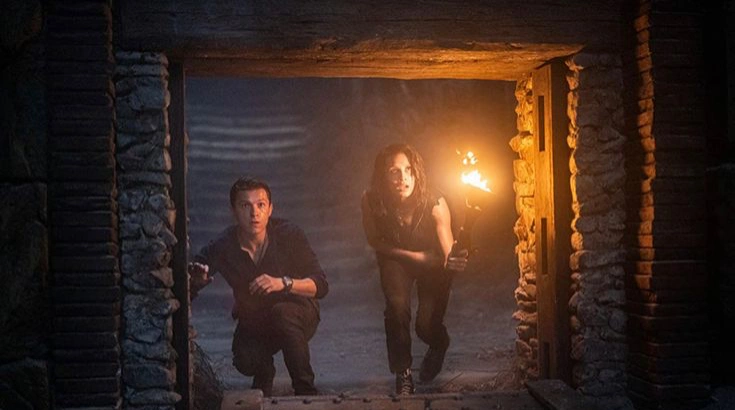
Visually, The Last Forest is stunning. Cinematographer Mikhail Alekseev captures the eerie silence of Siberia’s taiga with vast drone shots, fog-drenched ravines, and natural light that shifts from golden serenity to suffocating gray. The film moves slowly and deliberately, evoking a sense of creeping dread reminiscent of Tarkovsky’s Stalker and the ecological horror of Annihilation.
Composer Hildur Guðnadóttir delivers a sparse, unsettling score using field recordings of wind, creaking branches, and distorted birdcalls. The sound design itself becomes part of the storytelling — reinforcing the idea that the forest is watching, responding, changing.
But beneath the surface mystery lies a deeper meditation: on exploitation, colonialism, and the irreversible damage of human arrogance. As James uncovers corporate secrets buried in the soil — and faces his own complicity — the film asks pressing questions about what it means to be a witness, and what it costs to act.
Premiering on March 22, 2025, at the Berlin International Film Festival, The Last Forest is already generating buzz for its genre-defying mix of thriller, slow-burn drama, and environmental philosophy. For Tom Holland, the film is a bold, career-defining shift — a chance to prove that his talents extend far beyond the high-flying action of blockbusters.
And for audiences, it is a haunting reminder: the earth may not scream when it suffers — but it never forgets.
In May 2025, Apple TV+ released Fountain of Youth, an ambitious adventure film directed by Guy Ritchie and starring John Krasinski as its central hero The movie blends archaeological mystery, global adventure, and a philosophical twist on immortality — weaving high-octane action with a character-driven narrative.
Krasinski stars as Luke Purdue, a modern-day treasure hunter reminiscent of Indiana Jones, who embarks on a quest to uncover the legendary “Fountain of Youth.” Brother-sister dynamics come into play as Natalie Portman portrays his sister Charlotte, alongside a supporting cast including Eiza González, Domhnall Gleeson, Stanley Tucci, and Naji Moayed Their journey takes them through tropical jungles and ancient ruins, confronting secret tribes and shadow organizations, and facing life-altering revelations.
Written by James Vanderbilt, the screenplay aims to harmonize action-packed sequences with emotional resonance — especially exploring the sibling bond and moral dilemmas of seeking eternal life. Guy Ritchie’s directorial flare injects humor, brisk editing, and the nostalgic pulse of classic adventure cinema
Reception has been mixed. Critics praised the production values, cinematography, and performances but noted that the story often feels formulaic — echoing Indiana Jones without groundbreaking originality . Some described it as harmless escapism; others lamented that it lacks the fresh spark of true originality.
Still, the film offers a visually compelling and emotionally warm viewing experience. With exotic locales, familial themes, and subtle musings on mortality, Fountain of Youth invites audiences to ponder the true meaning of immortality — not in never-ending life, but in lasting relationships, memories, and courageous living.
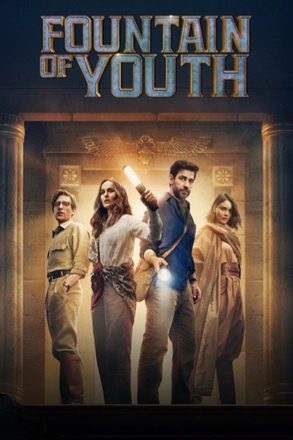
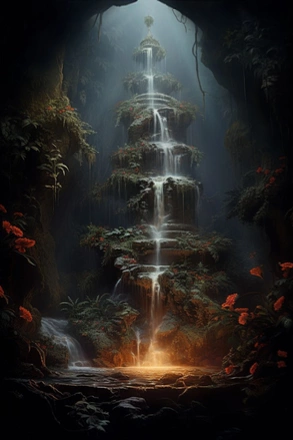
Actress Emma Stone,
together with the studio A24 and comedian-screenwriter Nathan Fielder, are
preparing an ambitious film centered on one of the most high-profile and
controversial events in the world of chess — the scandal that erupted in 2022
between reigning world champion Magnus Carlsen and young grandmaster Hans
Niemann. The film is based on Ben Mezrich’s book Checkmate, whose works
have previously inspired well-known movies like The Social Network and Bad
Blood.
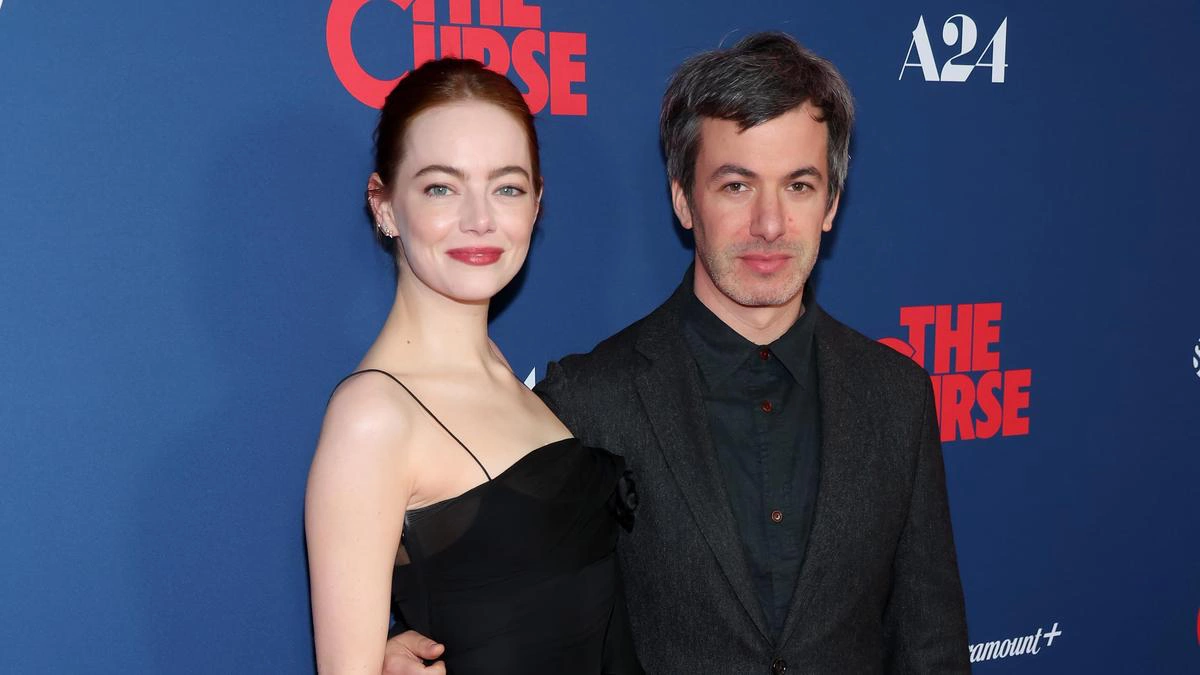
This film promises to be
more than just a sports drama; it aims to offer a deep dive into complex
relationships, issues of trust, honesty, and the impact of public opinion on
the individual. The incident that sparked the conflict occurred during the 2022
Sinquefield Cup, when Niemann unexpectedly ended Carlsen’s incredible 53-game
winning streak by defeating the world’s most decorated chess player. After the
loss, Carlsen accused Niemann of cheating, claiming he used illicit methods to
gain an advantage.

The controversy quickly
spilled beyond the chess community, generating widespread media and social
media buzz. Public interest was further fueled by popular American talk shows
such as The Daily Show with Trevor Noah and The Late Show with
Stephen Colbert, where jokes and discussions intensified the fascination with
the event. Adding a peculiar twist, Elon Musk suggested on social media that
Niemann might have used a vibrating device implanted in his body to receive cues
during the game. These absurd rumors only underscored how far the debate had
gone and how deeply this chess story had permeated popular culture.
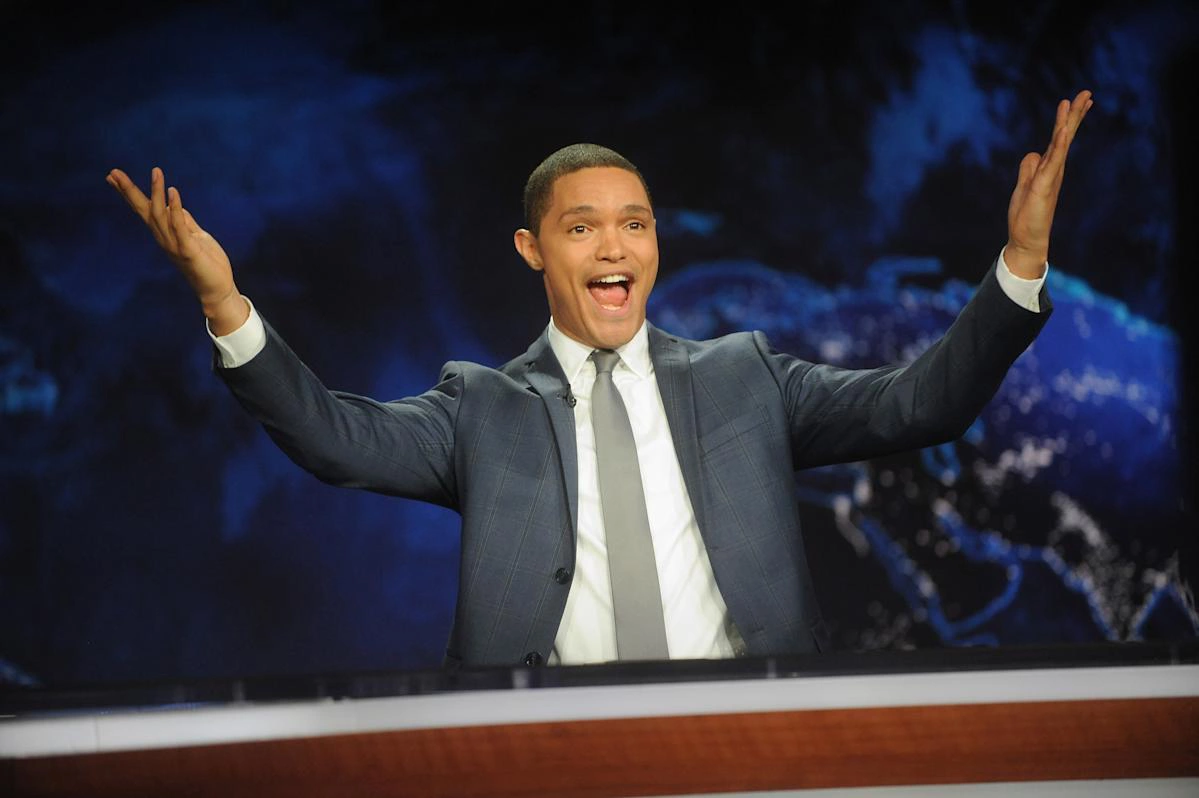
According to Variety,
several major studios and streaming platforms competed for the rights to adapt
the book, but independent company A24 won the race by offering a seven-figure
budget. The project is currently in early development, with Nathan Fielder set
to direct. Known for his unique approach to drama and comedy, Fielder created
the series Rehearsal and has previously collaborated with Emma Stone and
A24 on the series The Curse, which is contending for prestigious awards.
Emma Stone will serve as a producer alongside her husband, Dave McCary, through
their company Fruit Tree.
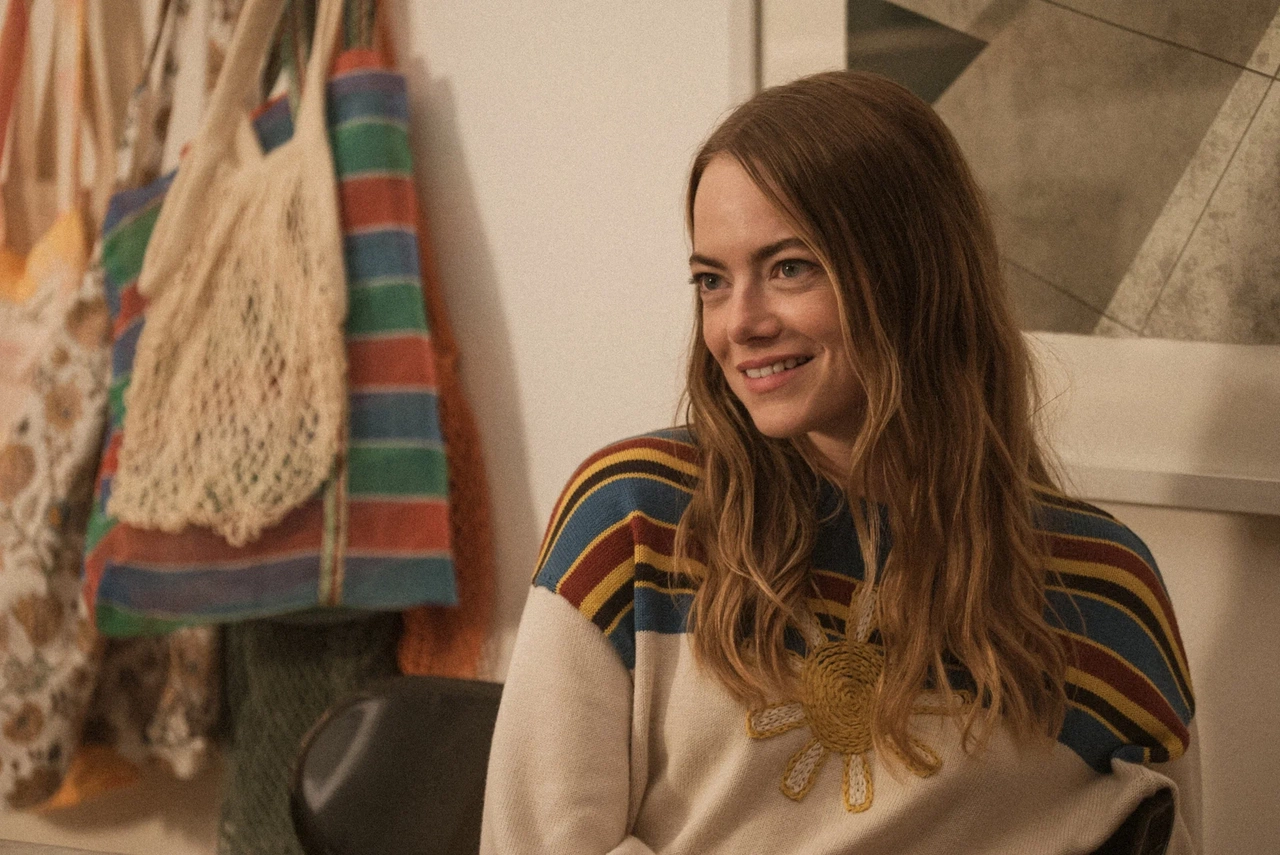
It’s worth noting that this
is not the first collaboration between Stone, Fielder, and A24, a studio
celebrated for supporting unconventional, intellectually rich projects with
distinct styles and deep meanings. In the context of the chess scandal, A24 and
the creative team promise to explore not only the athletes’ internal struggles
but also broader themes — the influence of public pressure, questions of
ethics, honesty, and human vulnerability. The film could become a kind of
mirror reflecting our times, where every action and reputation is scrutinized
under a microscope.
Personally, I believe this
project is both timely and multifaceted. Though chess may seem like a niche
sport, it provides an excellent backdrop for exploring human emotions,
conflicts, and even societal dynamics. The story of Carlsen and Niemann reveals
how easily talent and success can be questioned and highlights the powerful
role media plays in shaping public opinion. Moreover, this is a great
opportunity for cinema to delve into the psychology of the players, understand
their motivations, and portray how intense and complex the battle is — not only
on the board but beyond it.
Given the caliber of the
people involved and A24’s reputation, the film is expected to have high
artistic value and attract not only chess enthusiasts but also a broad audience
interested in drama, intrigue, and human stories. Emma Stone, long recognized
not just as an actress but as a producer with a refined taste for original
projects, seems the ideal figure to lead such a bold endeavor.
Ultimately, this film may
become not just a cinematic event but an important cultural phenomenon,
sparking renewed interest in chess while offering thought-provoking reflections
on honesty, ambition, and public life in the age of digital media.